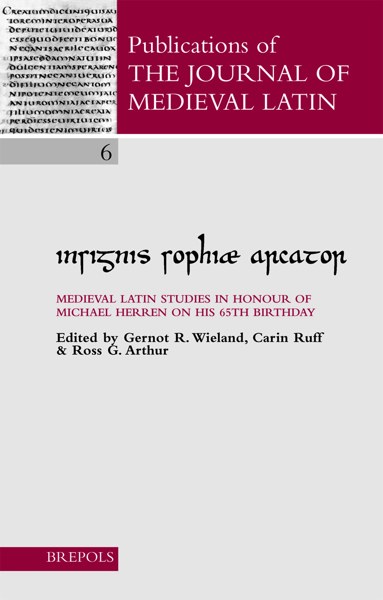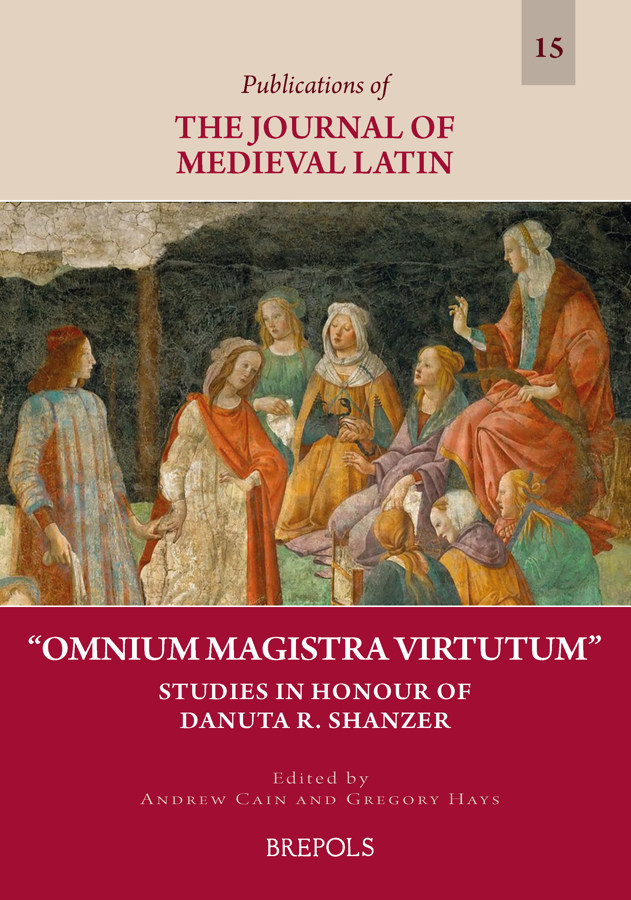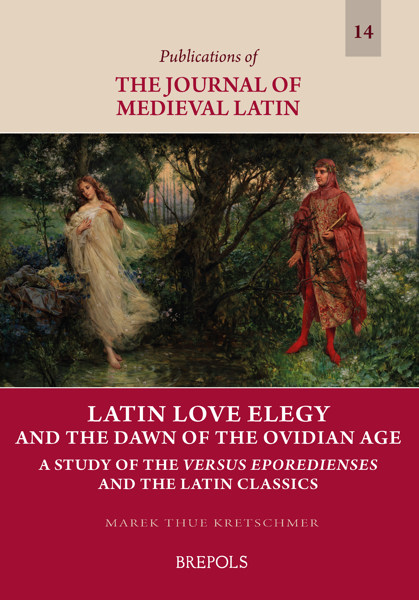
- Pages: 485 p.
- Size:178 x 254 mm
- Illustrations:6 b/w, 1 col.
- Language(s):English, German
- Publication Year:2022
- € 95,00 EXCL. VAT RETAIL PRICE
- ISBN: 978-2-503-59844-4
- Paperback
- Available
- € 95,00 EXCL. VAT RETAIL PRICE
- ISBN: 978-2-503-59845-1
- E-book
- Available
Studies by twenty-seven scholars in honor of the distinguished Latinist Danuta Shanzer.
« Si tratta di una raccolta variegata e scientificamente densa, coerente con la personalità della studiosa. Il tributo che ogni singolo autore ha voluto dedicare a Danuta Shanzer rispecchia i suoi interessi scientifici ma risulta essere contemporaneamente un attestato di affettuosa stima, ren[1]dendo il volume un ottimo esempio di allestimento di una Festschrift. » (Concetta Longobardi, in Bollettino di studi latini 53, 2023, p. 777)
"This volume is an erudite, intriguing, and entertaining collection of topics, methods, and approaches that reflect the honoree well. In some ways, it is an argument for the continued existence of textual commentary, textual analysis, determination of historical context, philology, and Classics. It demonstrates the ability to employ all of these across the breadth and depth of Late Antiquity and the Middle Ages." (Nikolas O. Hoel, The Medieval Review, 14/02/2025)
Andrew Cain is Professor of Classics at the University of Colorado, Boulder.
Gregory Hays is Associate Professor of Classics at the University of Virginia
Over the course of her career Danuta Shanzer has contributed multifariously to the study of late antique and medieval Latin, as scholar, teacher, conference organizer, and journal and series editor. Author of a ground-breaking commentary on Book 1 of Martianus Capella’s De nuptiis Philologiae et Mercurii and co-translator (with Ian Wood) of the letters of Avitus of Vienne, she has produced important articles on a wide range of Latin authors and texts, from Augustine to Gregory of Tours.
The contributors to this volume honour Shanzer’s achievement with studies related to her scholarly interests.
Gregory Hays, University of Virginia – Introduction
Roger S.O. Tomlin, University of Oxford – Intermittent Fever: A Latin Textual Amulet from Roman London
Daniel Marković, University of Cincinnati – Sum ipsa rhetorica: Rhetoric’s Exordium in Martianus Capella
Michael Winterbottom, University of Oxford – Late Antique Theories of Prose Rhythm: The Fragmenta Bobiensia, Martianus Capella, and Marius Plotius Sacerdos
James J. O’Donnell, Arizona State University – Why Boethius Had to Die
Benjamin Garstad, MacEwan University – ‘Merito nonnulli Magno conparavere maiores’: The model of Alexander the Great in Jordanes’ Getica
Florin Curta, University of Florida – Pseudo-Martin of Braga and the Slavs: A Re-examination of the Poem In Basilica
Victoria Zimmerl-Panagl, CSEL/Universität Salzburg – Textkritisches zu Prophetenzitaten bei Ambrosius von Mailand und ein problematisches Stemma (De fide)
Andrew Cain, University of Colorado – Rufinus of Aquileia’s Historia monachorum in Aegypto: Authorship, Hagiographic Aemulatio, and the Antony Legend
Philip Polcar, University of Vienna – Setting up a Straw Man: Helvidius and Jerome on Mt. 1.25
Dorothea Weber, Universität Salzburg – Zu Struktur und Datierung des Corpus der Felix-Gedichte des Paulinus von Nola
Stephen M. Beall, Marquette University – Seeing is Believing: Iconic Prose in the Confessions of Saint Augustine
Gillian Clark, University of Bristol – True or False? Augustine on Text and Translation
Kurt Smolak, Universität Wien – Von den Phäaken nach Amiens. Martin von Tours und der Bettler im literarischen Kontext
Maurus Mount, OSB, Saint Vincent Seminary – O quotiens urguente Deo ventura fatentur: A Strange Case of Clerical Demoniac Manipulation in the Vita Sancti Martini of Paulinus of Périgueux
Amy Oh, Skidmore College – Timing in Avitus’s De spiritalis historiae gestis
Gregory Hays, University of Virginia – Surprised by Sorrow: Avitus, Carm. 3.209–12
Ian Wood, University of Leeds – Gundobad’s Return to his Homeland
Edward James, University College Dublin – Materiality and the Holy in Gregory of Tours
Julia Barrow, University of Leeds – Bishops as Uncles in Merovingian Gaul
Lukas Dorfbauer, Universität Salzburg/CSEL – Zu einem karolingischen Handschriftenfragment aus Mondsee: Ein unbekannter mythographischer Text und seine Verbindung zu den Scholia Bernensia sowie zu irischen Orosius-Glossen
Thomas D. Hill, Cornell University – Symbolism and Typology in Bede’s Passion of St. Albanus
Michael W. Herren, York University and Centre for Medieval Studies, University of Toronto – Teach Yourself Greek: The Text Book Example of John Scottus Eriugena
Thomas F.X. Noble, University of Notre Dame – Politics and Religion: Ideal and Reality in the Carolingian Specula Principum
Robert G. Babcock, University of North Carolina at Chapel Hill – Egbert of Liège and St. Martin, or Where did Egbert Teach?
Greti Dinkova-Bruun, Pontifical Institute of Medieval Studies – Scylla and Charybdis: Classical Marine Perils in Two Verse Bibles of the Later Middle Ages
Winthrop Wetherbee, Cornell University – Goliae Dialogus inter Aquam et Vinum: A New Edition
Paul R. Hyams, Cornell University – St. Edmund’s “Privatae Convenciones” and the Cockfield Case of 1201
Danuta Shanzer – List of Publications




